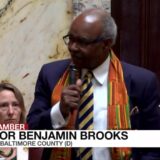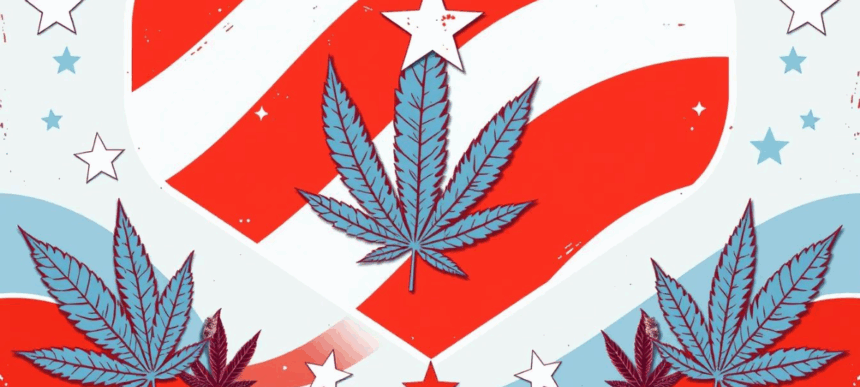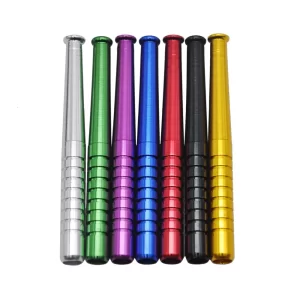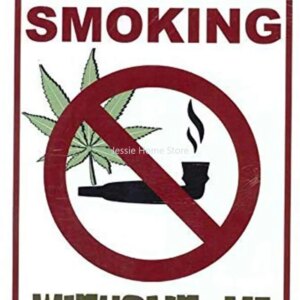For decades, American politics has been locked in a stale headlock between Democrats and Republicans. Red versus blue, left versus right—the duopoly is so ingrained that most voters can’t even imagine a third way forward. But cannabis is doing what no polished debate stage or billion-dollar Super PAC could: it’s cracking the two-party armor wide open.
In red states, voters choose legalization when their politicians won’t. In blue states, activists push past timid Democrats to demand equity and justice. And in between—the independents, the libertarians, the Greens—cannabis is the rare issue where everyone can share a joint, literally or figuratively. The plant is forcing the conversation that politics has avoided for too long: if weed can unite us, why are the old parties still dividing us?
Weed at the Ballot Box
Let’s get real: cannabis is more popular than either major party. A recent Gallup poll found that 70% of U.S. adults support legalization, including a majority of Republicans. Yet Congress, trapped in the duopoly, can’t even agree to deschedule a plant more benign than alcohol.
So people take it into their own hands. In Missouri, voters approved Amendment 3 in 2022, legalizing recreational cannabis despite Republican resistance. In South Dakota, voters passed both medical and recreational cannabis initiatives in a state long dominated by conservative leadership. In Montana, a ballot measure in 2020 legalized recreational weed with nearly 57% support, again over Republican objections. And in New York, the 2021 Marihuana Regulation & Taxation Act came with strong social and economic equity provisions, driven by grassroots activists who refused to let Democrats water it down.
Cannabis is teaching Americans a truth they already know deep down: power doesn’t just flow from Washington down. Sometimes it grows from the ground up—literally.
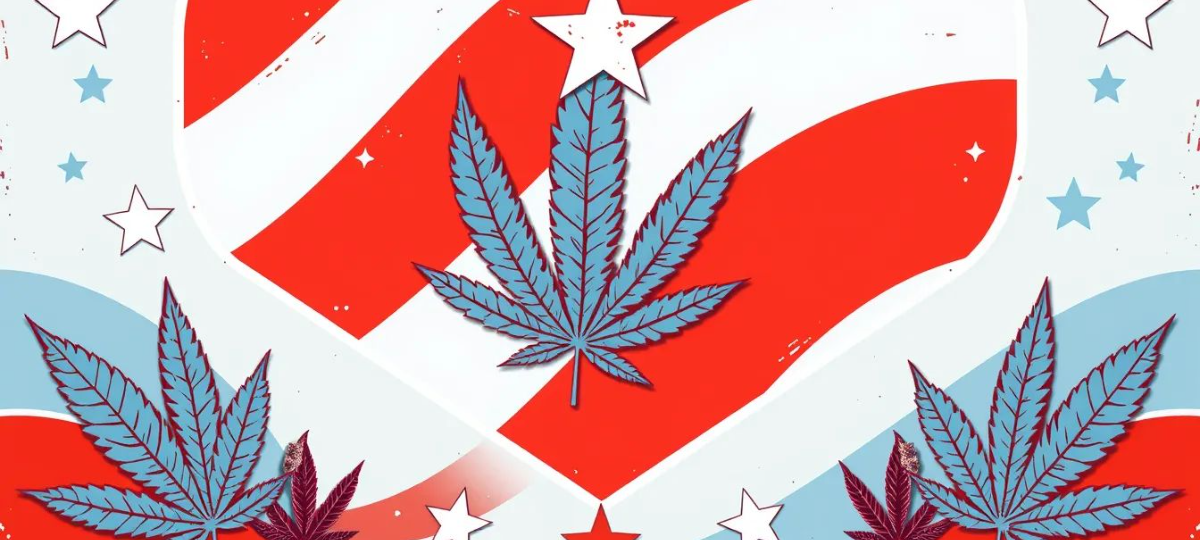
From Gig Work to Grassroots
I come to this not as a polished pundit, but as someone who’s hustled in the gig economy, washed dishes in restaurants, moved furniture, worked on carnivals, and now works in cannabis media. I’ve seen every layer of American labor, from minimum wage to self-employment. What ties it together is the sense that the system wasn’t built for us, but cannabis keeps building new systems anyway.
The cannabis economy is one of the last bastions of true entrepreneurship. Legacy growers, underground innovators, and small brands carved out a culture long before Wall Street suits wanted a slice. In that culture, I found not just a paycheck, but a purpose. Cannabis taught me that work could mean something bigger than survival—it could mean resistance, community, and even joy.
The Duopoly’s Bad Trip
Here’s the thing about the two-party system: it was never designed to hold space for cannabis. Democrats want to “study it more.” Republicans want to “protect kids” while cashing checks from Big Pharma and Big Booze. Neither side is telling the truth.
The truth is, cannabis threatens their entire business model. Why? Because the plant is democratic in the purest sense. It grows anywhere. It belongs to everyone. You can’t patent it, hoard it, or gatekeep it the way you can oil or weapons contracts. Cannabis resists centralization, and that terrifies a political machine built on control.
That’s why legalization at the federal level has dragged on for decades despite overwhelming public support. To fully legalize cannabis is to admit that the people were right all along, and that both parties built a war on drugs that was racist, destructive, and wrong. That reckoning is bigger than they can handle.
Strange Bedfellows: How Cannabis Builds Coalition
Here’s what I’ve learned covering the industry and culture: cannabis builds bridges that politicians burn. I’ve smoked with libertarians who see weed as freedom, progressives who see it as justice, veterans who see it as medicine, and conservatives who see it as a better crop than tobacco.
Cannabis is the one place where ideological purity dissolves. When you pass a joint, you’re not asking who someone voted for. You’re asking: do you feel this too? That shared feeling is political gold. The kind that can’t be faked in ads or sold in donor dinners.
If cannabis can bring together people who disagree on everything else, then maybe it’s the issue that proves a third party isn’t just possible, but necessary.
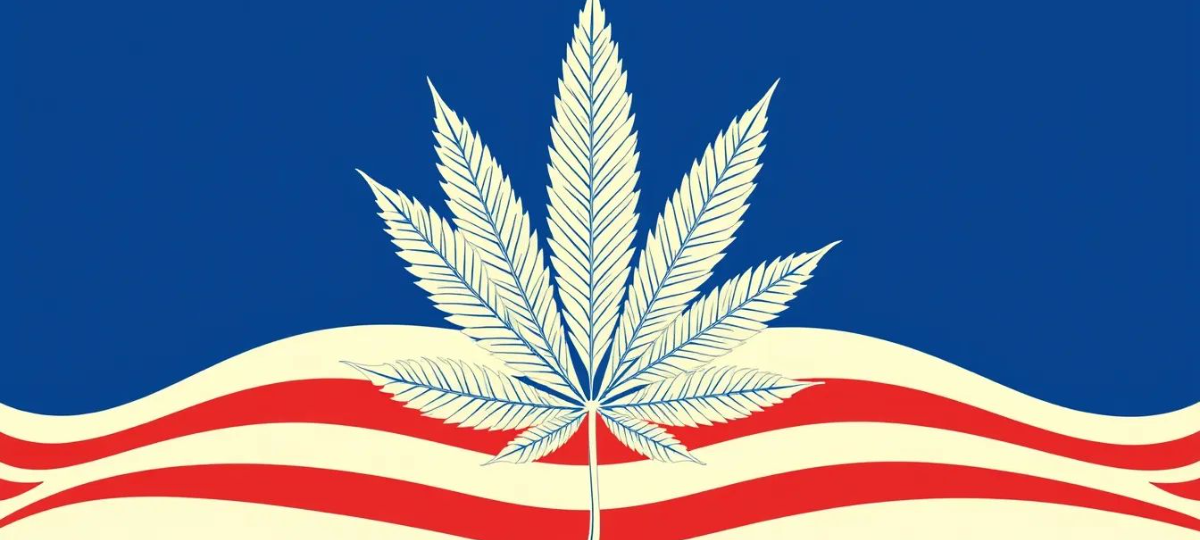
Beyond Legalization: Equity, Justice, and the Green Economy
Legalization isn’t the end of the story. In fact, it’s just the beginning. Cannabis exposes the failures of mass incarceration, the racial wealth gap, and the predatory greed of corporations trying to steal a culture they didn’t build.
That’s why any cannabis-driven political awakening must go deeper:
- Equity: Making sure communities most harmed by prohibition actually benefit from legalization.
- Justice: Expunging records and ending the war on drugs entirely.
- Economy: Using cannabis not just as a cash cow for state budgets, but as a pillar of sustainable farming, hemp-based industry, and green jobs.
The duopoly can’t handle that conversation. They want the tax revenue without accountability. But cannabis culture won’t let them off easy.
Every empire falls the same way: not with one big collapse, but with cracks that spread until the whole thing can’t hold. Cannabis is that crack in America’s duopoly.
It shows that people can outvote their politicians. It proves that consensus can exist outside the red/blue binary. And it plants the seed—literally—of a new kind of politics.
I don’t believe cannabis alone will topple the two-party system. But I do believe it will be remembered as the issue that started the break. When future historians look back at the 2020s, they won’t see just culture wars and gridlock. They’ll see a plant that forced a country to imagine a third way.
The Blunt Truth
High Times has always known this: cannabis is more than smoke and mirrors. It’s culture, it’s politics, it’s survival. And right now, it might just be the lifeline American democracy needs.
The Democrats and Republicans will keep trying to puff-puff-pass the blame. But the people are already sparking something different. You can feel it in dispensaries, in statehouses, in fields where hemp is replacing dying industries. You can feel it every time a joint gets passed between strangers who suddenly aren’t strangers anymore.
The blunt truth? Cannabis won’t just get America high. It might finally get America free.
This article is from an external, unpaid contributor. It does not represent High Times’ reporting and has not been edited for content or accuracy.




